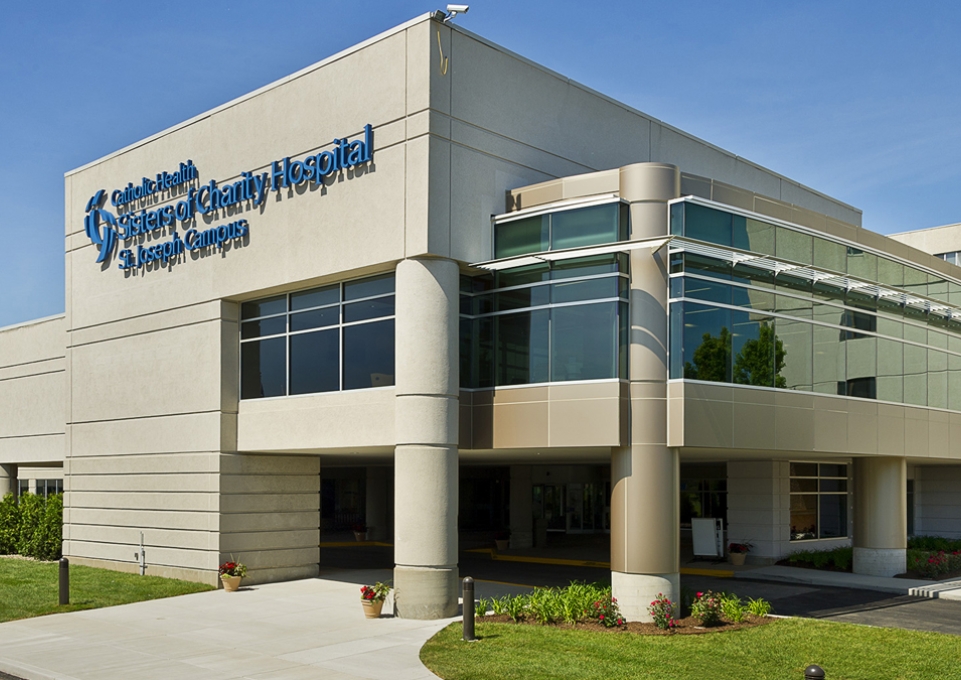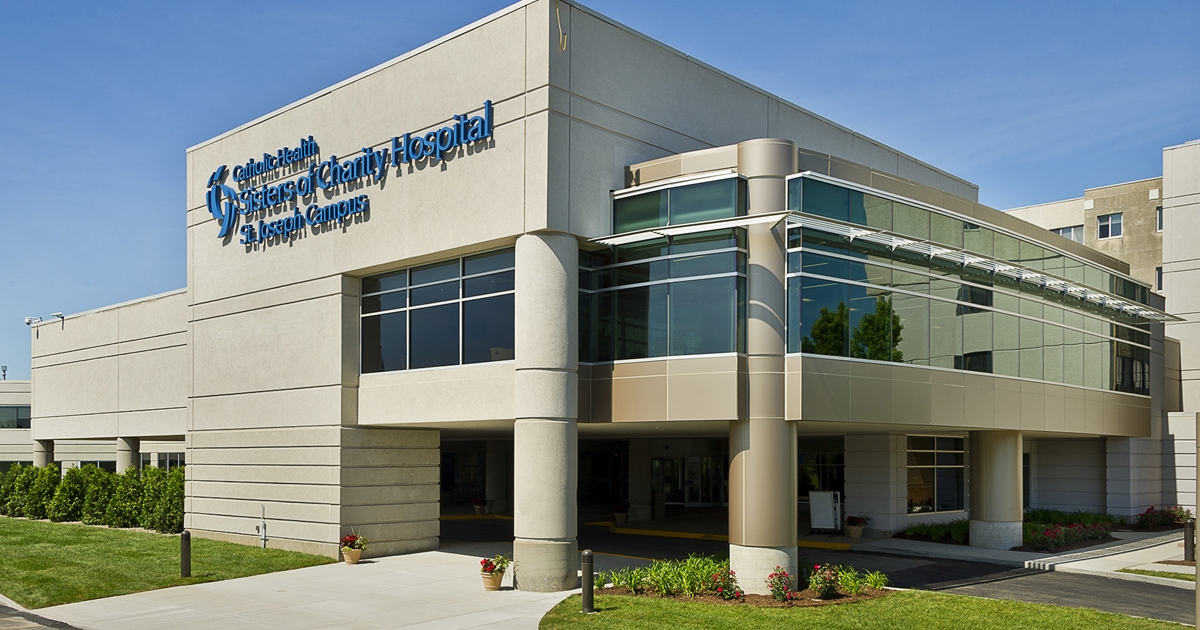
Buffalo State College student Travis Zielinski has seen more than most during the coronavirus pandemic.
Zielinski, a history and social studies education major, is a nursing assistant at the St. Joseph Campus of Sisters of Charity Hospital in Cheektowaga. In March, St. Joseph was designated the first COVID-19 hospital in New York State. Since then, Zielinski has been caring for the sickest coronavirus patients in Western New York.
“It’s almost surreal,” Zielinski said. “It’s something you could never imagine. These are really critical patients who are really sick.”
St. Joseph was chosen based on its location and how quickly the hospital was able to set up beds for those infected with coronavirus who needed to be hospitalized, said Mark Sullivan, president and CEO of Catholic Health, which runs the facility. It now sees COVID-19 patients exclusively.
Zielinski took a job in St. Joseph’s emergency room nearly four years ago, when he was pursuing a degree in nursing. He changed career tracks last fall, enrolling at Buffalo State to become a social studies teacher. He kept the job, however, as he enjoys his co-workers and working at the hospital. Before the pandemic came to Western New York, Zielinski spent most of his days setting up EKGs, helping people with lacerations, and checking glucose levels. Now, he’s working with intubated patients in the intensive care unit.
“I used to walk into work, take care of my patients, read my books for school, and take notes to prepare for classes,” he said. “Now, I don’t have any of that free time.”
When Zielinski arrives at work, he goes through a screening process to ensure that he is healthy, including a temperature check. From there, he is given prepackaged scrubs and places his clothing in a paper bag. Then he checks his assigned “zone” in the hospital and begins his shift. Depending on his assignment, Zielinski’s protective gear may include a mask, a hairnet, a gown, gloves, and goggles. The equipment can be quite warm, and Zielinski said that he’s seen doctors and nurses faint in the heat of all the gear.
At the end of his shift, he checks into a local hotel that has been reserved by the hospital to shower and sleep before going home, to ensure he’s not taking the virus with him.
At the beginning of the pandemic, Zielinski considered putting in his two weeks’ notice. His parents are immunocompromised, and he worried about passing the virus on to them or his girlfriend. But he continues to follow his conscience.
“Even though it’s scary, someone has to do it,” he said. “If no one does, we’ll be in an even worse spot than before.”
The hardest part, Zielinski said, is working with the patients. They range in age from their 20s to their 90s. One day, a patient will seem fine and alert, and the next day, he’ll be intubated.
“The saddest part is that they can’t see their families,” he said, adding that he’s witnessed more than 20 deaths at the facility.
Despite everything, Zielinski is still finding the time to do his schoolwork. He’s taking six classes and devotes his entire weekends to his coursework.
Jill M. Gradwell, professor of history and social studies education, is Zielinski’s adviser. She said she’s proud of what he’s doing, especially since he’s carrying a full-time class load.
“Travis is a very diligent and conscientious student,” she said. “He hasn’t missed a beat during this entire crisis. He is always one of the first students in the class to submit his online assignments and is very supportive of his classmates’ work as evident by his thoughtful discussion board posts.”
Gradwell said she’s not surprised to see Zielinski stepping up in the face of the pandemic.
“Buffalo State has a long history of fostering students’ engagement with their community, and Travis is the true embodiment of this tradition,” she said. “The work he is doing at the hospital is not only making a difference in these patients’ lives but is preparing him for his future career as a social studies teacher, where he will touch the lives of the youth in his classroom and school.”
Zielinski offered some advice for how those who are not on the front lines can help:
“Just stay home,” he said.
Photo credit: Catholic Health.



